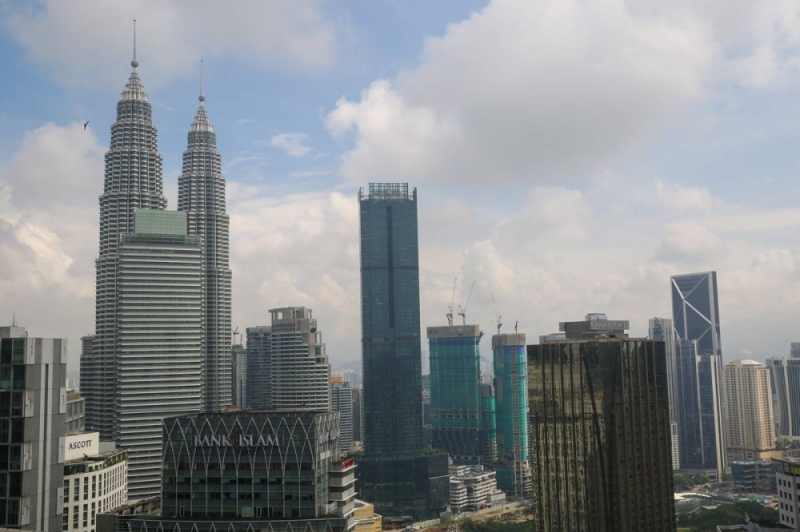Cultural exchange at CM's open house - The Star

Cultural significance of Spring Festival Gala is world-class
Despite the difficulties and challenges ahead, we are always inspired by this spiritual power. Such a national spirit has been fully manifested in the Spring Festival Gala.

HSBC sees slower growth of 4.0pc for Malaysia's economy KLCI to hit 1,570 pts in 2023
The year of the Rabbit would be a stabilising period that could see Malaysia’s gross domestic product (GDP) growth moderate from the expected 8.4% for 2022 to 4% in 2023, although the latter figure may still be considered a “robust” expansion rate, according to HSBC’s Global Research Economics team. The team said Malaysia has been a clear regional outperformer in a turbulent 2022, experiencing a GDP year-on-year (y-o-y) growth of 14.2% for the first nine months of last year, making it Asean’s top performer for the second consecutive quarter in the third quarter of 2022 (3Q22). “Despite a cooling trade cycle, Malaysia’s external engine remained surprisingly resilient in the second half of 2022, benefitting from its well-diversified mix of exports. “While some commodity prices cooled, they have stayed at an elevated level, boosting the country’s energy exports. “Meanwhile, Malaysia’s electronics exports have defied the global trend, pushing its trade surplus to a historic high,” the team said at the HSBC 2023 Asian Outlook conference yesterday. The team said Malaysia’s booming domestic demand has been the main growth driver, reflecting a continued reopening tailwind. Underpinned by an ongoing improvement in its labour market, retail sales have seen speedy recovery, with consumption of goods and most services exceeding pre-pandemic levels, except for some tourism-related sectors, it said. As such, its co-head of Asian economics research Frederic Neumann predicted that Bank Negara would have to raise interest rates in the second quarter of 2023 – most likely to 3.5% – to keep a lid on lingering upward price pressures spilling over from last year due to the country’s extraordinary economic resilience. On top of that, Neumann said Malaysia would remain one of the key beneficiaries of the supply chain “rejigging” that is occurring across Asia. He expects high amounts of foreign direct investments continuing to pour into the country that would lead to further expansions in its export capacity. “China’s reopening will benefit Malaysia’s economy, just as it will for other neighbouring economies. This is because China is a major export partner for Malaysia, which means the commodity angle would be positive. “More importantly, Chinese companies are also investing in the country, particularly in the manufacturing sector,” said Neumann, adding that bilateral travel would also benefit the tourism sector. The HSBC global economics research team also pointed out that while the local inflation rate has remained largely under control, in fact the lowest in Asean thanks to generous governmental subsidies, it has nonetheless accelerated. “In particular, core inflation recently overshot 4% y-o-y, reflecting booming local demand. A large part of the inflation trajectory in 2023 will depend on the new Budget (2023). “All in all, we believe core inflation will likely remain sticky and high in the near term and, as such, we recently upgraded our average core inflation to 3% for both 2022 and 2023,” it said. Meanwhile, HSBC head of equity strategy for Asia-Pacific, Herald van der Linde, is expecting the FBM KLCI to hit 1,570 points by the year-end, representing a slight upside to its current standing. He said the rationale for the forecast is the local bourse’s “stable” characteristic. “When markets are down, investors want to be in Malaysia because it does not recede as much as the other countries. “Conversely, if markets go into a recovery mode, as we are expecting in 2023, Malaysia is not expected to catch up as much either. It is more steady than many other bourses in the region.” On a separate note, the team is bullish about China, projecting it to stretch its GDP growth to 5.8% next year from the 5% forecast for this year. Chief economist for Greater China Liu Jing expects a strong rebound in the Middle Kingdom from 2Q23, the same quarter she believes the country will fully re-emerge from the lockdown effects. “We expect consumption, which has been a laggard so far, to come back to record a growth level of approximately 8% in 2023. “When China emerges from pandemic, the impact of housing market policy support will also materialise, giving way to what should be a modest rebound in the housing sector this year,” she said. Van der Linde said the environment for Asian equities in 2023 would be constructive and the team remains overweight on China and India, expecting them to be the fastest growing markets this year. “We are selective on Asean and Thailand remains our favourite market,” he said.
On how the team sees the US Federal Reserve (Fed) behaving this year – which has been and will continue to be the other major factor influencing market movement aside from the reopening of China – Neumann sees the Fed to be holding on to its rate of around 5%, before pivoting by the middle of 2024.
Related articles:
Experts: Work hard now, economy downturn temporary
Rabbit Horoscope 2023/2022, Monthly Predictions
2023 Horoscope Predictions for the Chinese Zodiac Signs
https://www.youtube.com › watch










No comments:
Post a Comment